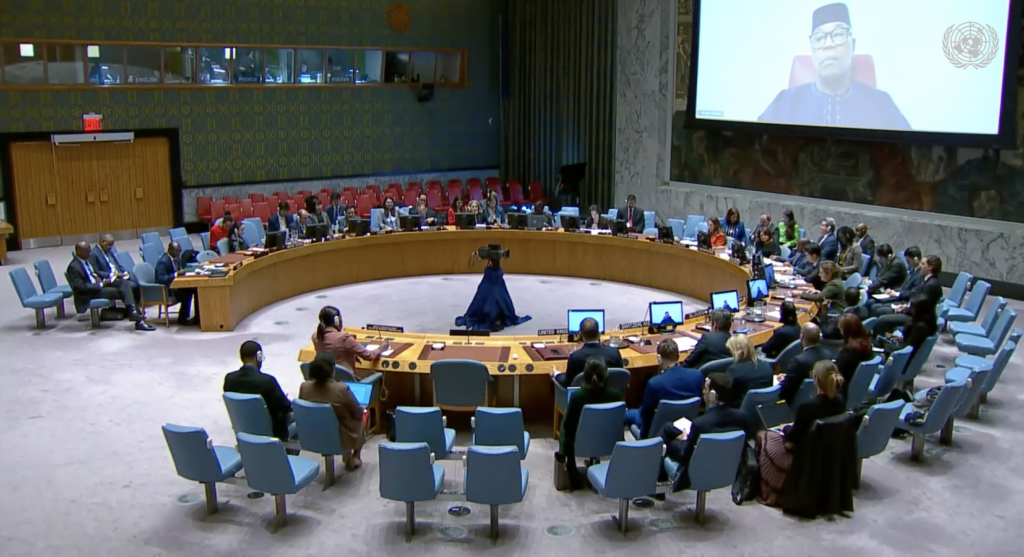Statement by Deputy Permanent Representative Anna Evstigneeva at UNSC briefing on the situation in Sudan
Mme.President,
We thank Ms. Rosemary DiCarlo, Under-Secretary-General for Political and Peacebuilding Affairs; Ms.Edem Wosornu, OCHA Operations Director; and Mr.Mohamed Ibn Chambas, High Representative of the African Union, for their presentations. We welcome the Permanent Representative of Sudan to this meeting.
The developments in Sudan are of great concern to us. The intense fighting that has been going on since April 2023 has resulted in numerous casualties, including among the civilian population. The country is in a difficult humanitarian situation. According to some UN agencies, millions of Sudanese citizens are food insecure for various reasons. Nearly 11 million have been displaced, of whom more than 9 million are internally displaced. The Central African Republic, Chad, Egypt, Ethiopia, Egypt and South Sudan are under severe strain too.
There are shortages of medicines. Nearly three-quarters of health facilities are not functioning, and two-thirds of the population have no access to health care. Dangerous diseases are spreading.
The UN, its Security Council and other relevant bodies need to stick to a balanced and constructive approach. It is counterproductive to downplay, for political reasons, the role of central authorities in addressing humanitarian issues, including issuance of permits for cross-border humanitarian relief supplies, i.a. to Darfur. Port Sudan's engagement with the United Nations country team should be fully supported. I emphasize the importance of addressing all emerging humanitarian issues through the central authorities. The politicization of humanitarian assistance is unacceptable in Sudan and elsewhere.
We noted the international donor conference on Sudan that concluded on April 15 in Paris. It is gratifying that the conference expressed intentions to allocate funds to provide humanitarian assistance to the Sudanese and refill the humanitarian response plan for 2024. We hope it works. We regret, however, that despite the declared humanitarian nature of the event, the hosts decided to make it political, and in their own way. They did not invite the Sudanese parties involved or those who have real influence on the ground, but invited only representatives of the Taqaddum coalition.
Mme.President,
Security Council resolution 2724 adopted on March 8 this year calling on the parties to the conflict to declare a ceasefire during Ramadan did not bring about any changes. And it could hardly have, since it was largely a populist step not aimed at resolving the key causes of the current conflict. That is why our country abstained in the voting.
Russia undoubtedly calls on the parties to the conflict to show political will and take the necessary steps to end armed confrontation, which is causing so much suffering to the civilian population of the country. We believe that any disagreements can be resolved by the Sudanese themselves at the negotiations table and without any external dictate on how to achieve this.
This being said, we realize that failure to resolve the current acute phase of the conflict in Sudan is not explained by the ambitions of the main Sudanese antagonists, but in inability or unwillingness to collectively assist the Sudanese in resolving its root causes in a practical, rather than pretended way. As the Secretary-General rightly pointed out during his April 15 address to the press, what is happening in Sudan is "more than just a conflict between two warring parties." It has deep historical and political roots, and Sudanese society must analyze what has happened and draw conclusions about the mistakes made. Hence, the solution to the conflict must also be comprehensive. An important stage after the cessation of hostilities should be the completion of the process of forming a unified Sudanese armed force, which has never been realized. The security sector is one of the national pillars of a national state. The preservation of state institutions is in the interest of Sudanese society, the region and all of us. Only then can we talk about the transfer of power to a civilian government that should be accepted and trusted by all Sudanese and whose values and goals must resonate with the majority of the population. We call on our Western colleagues to refrain from inflaming a distorted narrative that portrays the current development in Sudan as the result of the events of October 2021, which led to the resignation of the civilian government. As the saying goes, if there are mice in the house, do not blame the cat for eating them. We believe that efforts should focus on overcoming the root causes of problems rather than their implications.
We call on our colleagues who consider themselves "interested members of the Security Council" not to oversimplify the situation in Sudan. Your arguments about "two generals" and the humanitarian crisis may impress journalists, but will in no way help to solve the country's problems. We are sure that there is no magical solution, let alone an instant one, even if you rely on pressure, unilateral sanctions or similar instruments. We regret that at a certain stage the UN played such a role through the UN Transition Assistance Mission in Sudan (UNITAMS), which supported a forced transfer of power from army leaders to political establishments that do not have mass support in Sudanese society.
We are convinced that a sustainable settlement can be achieved only through the resumption of inter-Sudanese dialogue. In order to make it inclusive, we believe it important to involve all influential political forces and ethno-confessional groups in the country, including prominent regional leaders. We believe that progress in this will help to achieve broad national consensus. Without that, centrifugal tendencies risk to strengthen and the threaten to undermine the Sudanese statehood. This will be a tragedy for both Sudan and its neighbors. We call on the UN Security Council to avoid any action that could aggravate these processes.
Thank you.
